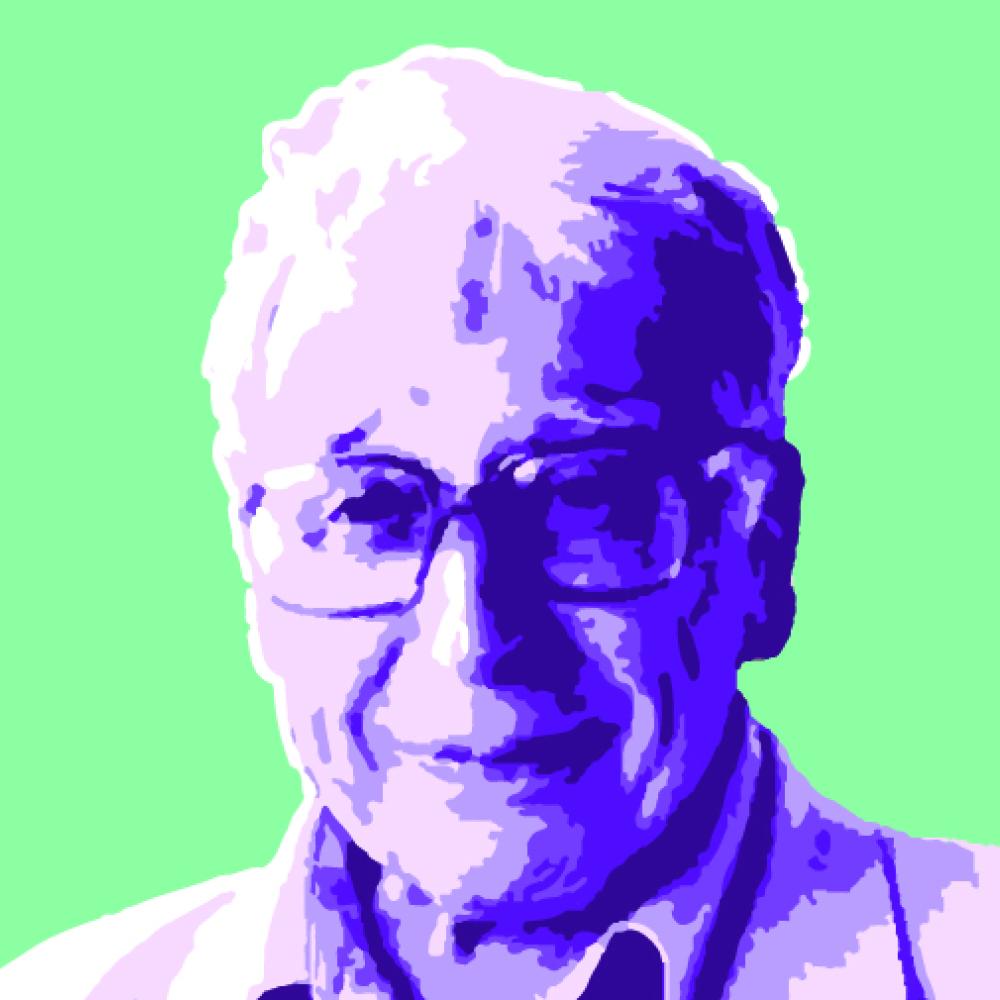

Robert Geoffrey EDWARDS (°1925 - 2013)
Profession: Physiologist, embryologist, and founder of in vitro fertilisation
Nationality: British
Why an honorary doctorate?
In 1988, Robert Geoffrey Edwards received an honorary doctorate from VUB for his pioneering work.
Go forth and multiply
Robert Geoffrey Edwards spent his life doggedly and rigorously pursuing research into fertilisation outside the body. His work has made the long-shelved dream of pregnancy a reality for countless women.
Edward's pioneering path opened revolutionary doors, paved the way to new and fully exploitable medical horizons: fundamental food for VUB. Some found his work controversial and unethical; others placed him on a pedestal for eternity.
Nature is powerful, grand, and unfathomable. She already lets us look into her cards; one piece, one side, sometimes she shows almost everything. She has a dubious relationship with people, who are so dear to her but often push her to extremes.
Scientist Robert Geoffrey Edwards engaged in a unique duel with her. Not for herself, but for those whom she did not wish to reward with the miracle of procreation. He discovered ways that surpassed her strength He found that man and his ingenious nature, from time to time, surpassed she who created him.
"I wanted to find out exactly who was in charge... It was us."
About his career
1978 to present: More than 4 million babies are born thanks to his IVF technique.
Establishment of the world's first IVF centre
Bourn Hall Clinic in Cambridge (UK) in 1980
1988: Commander of the British Empire, granted by Queen Elizabeth II
Memorable year 1978
On 26 July Louise Brown, the very first test tube baby, is born.
Academic record
Biology (Wales), zoology (Wales), animal genetics and embryology (Scotland), PhD in physiology.
Edward's story: "Oh yes, baby!"
27 September 1925. Robert Geoffrey Edwards is born in Batley, England. He grows up in Manchester and has to postpone the start of his higher education because of WWII: the British army is expecting him and he is sent to Palestine, Jordan, Egypt and Iraq.
When the war is exchanged for an armistice, Edwards moves back to England and later to the university environment, where in the late 1950s he obtains a doctorate. His studies here have a great influence on the rest of his professional life. He studied chromosomes and mouse embryos and learned about fertilisation, artificial insemination and reproductive physiology.
Edwards joins the California Institute of Technology - a private research university in Pasadena, California - as a researcher working with biologist Albert Tyler. After a year, he returns to his roots and finds his niche at the National Institute for Medical Research in Mill Hill, UK.
He spends at least five years researching biomedicine and developing the idea of in vitro fertilisation (a biological technique applied outside the body of the organism) of human egg cells. Most gynaecologists refuse to help him find eggs, but one occasionally sends him sections of human ovaries. However, he puts his research on hold for a year due to a lack of sufficient research material.
1963. Edwards sets to work at Cambridge University (UK), where he also resumes his research on in vitro fertilisation (IVF). It is 1968 when he begins working with gynaecologist Patrick Steptoe, an expert in laparoscopy. This is a surgical and minimally invasive technique that could give access to ovaries. Both men agree to work as equals and to stop their research immediately if it might harm patients or children. Political and religious obstruction is no reason for them to throw in the towel. From 1972, they start helping infertile couples to get pregnant.
1978 is a particularly memorable year. On 26 July Louise Brown, the very first test tube baby, is born. It is the beginning of a new era in medicine. The world is in turmoil - both positive and negative.
The pair found the Bourn Hall Clinic in Cambridge, UK, the world's first IVF centre, in 1980. The methods are constantly being refined and gynaecologists and cell biologists from all over the world come there to learn. That same year, Edwards and Steptoe publish their book 'A matter of life: the story of a medical breakthrough'. Other leading publications follow and Edwards serves as a prominent editor and publisher for many years.
Edward's scientific work and research rewards countless couples with children; more than four million babies come into the world through IVF. He himself leaves that world when he dies on 10 April 2013. The man who gave birth to so much new life is no more...
What is an honorary doctorate?
VUB has awarded honorary doctorates every year since 1978 to personalities from the most diverse backgrounds who have made a remarkable contribution to their field and to society. From this solemn moment of recognition, they bear the honorary title of Doctor Honoris Causa of VUB.